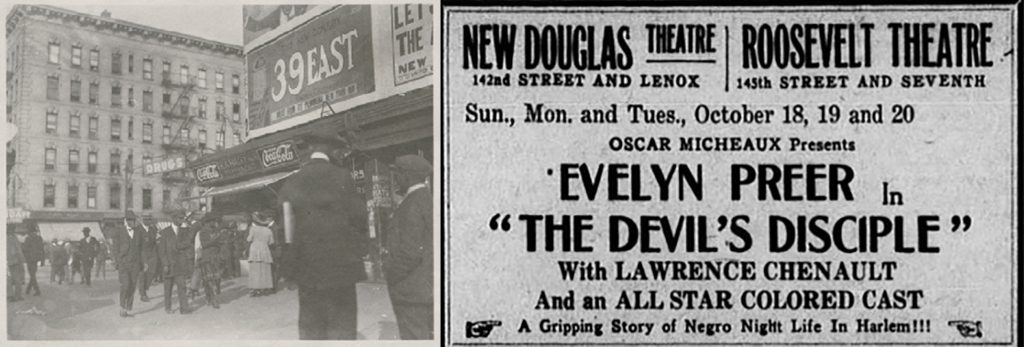
This paper investigates the way in which Black women of Harlem engaged with cinematic culture during the silent film era. Through an investigation of dispersed sources, ranging from Black press, court documents, personal correspondence to census data and municipal records, I aim to uncover the uses of cinema and cinematic spaces in the lives of Black communities. African American periodicals circulated within the area – The New York Amsterdam News, The Crisis and The New York Age – are especially illuminating, not only because of their role in advertising Black-oriented theatres and businesses, but chiefly due to their unwavering commitment to the promotion of critical citizenship within the community.
Existing, sparse scholarship on cinemagoing in the early film period, concentrates itself with culturally dominant, white audience. Though pioneering, studies developed by Gaylyn Studlar and Shelley Stamp tend to construct a gender and class-specific, but race-neutral moviegoer, disregarding the racial inferences of spectatorial practices. To unearth a Black female cinemagoer, I centre her within a narrow, geographic and socio-political environment of 1920s’ Harlem, of which racial segregation was a fundamental part.
New York is a fruitful site for the investigation of debates of race and mass entertainment because of the high concentration of Black migrants and cinemas: according to US census data, over 109,133 Manhatanittes were Black in 1920s. In 1930, the figure doubled, with the percentage of Blacks rising to 12 percent of the entire population of the borough.
Agata Frymus is a Lecturer in Film, TV and Screen Studies at Monash University Malaysia. Agata received her PhD in 2018 from University of York. She is the author of Damsels and Divas: European Stardom in Silent Hollywood (Rutgers University Press, 2020). Her research interests oscillate around the issues of race, audiences and stardom, particularly during the silent film era. Her work has been published in Historical Journal of Film, Radio and TV; Celebrity Studies and Feminist Media Studies, amongst others.